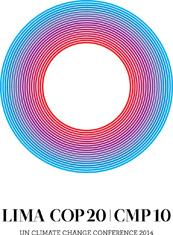A new series of films explores the links between land reform and economic activity in Zimbabwe, focusing on three commodities: tobacco, beef and horticulture.
The films are produced for the '
Space, Markets and Employment in Agricultural Development' (SMEAD) project by Pamela Ngwenya, supported by the field team. They are accompanied by an overview film.
Zimbabwe is one of three countries where the SMEAD project has undertaken case studies. The others are Malawi and South Africa.
Watch the films on YouTube (high resolution playlist)
Watch the films on YouTube (low resolution playlist)
Overview
Over the last couple of years the SMEAD project has looked at the linkages between agricultural production, employment and other economic activity and the spatial patterns of these interactions. Detailed case studies have explored the different growth pathways linked to agriculture, and how inclusive these are, asking who gains and who loses from agricultural commercialisation.
The study links to well-trodden debates about scale and agriculture, and the linkage and multiplier effects of different types of farming. Do
big or small farms create more employment and economic growth, for whom and where? What spatial
mix of farm sizes and markets make sense? Can local economic development flourish in an era of globalisation?
The early indications from the SMEAD studies suggest an interesting story, especially for Zimbabwe. This suggests a focus on
local economic development, capitalising on and amplifying the linkages already created by entrepreneurial farmers who have benefited from land reform. This will mean a major rethink of rural development policy and planning, but the benefits could be significant if the cases highlighted in these films are anything to go by.
Read more:
Making markets: local economic development following land reform (Zimbabweland blog)
Watch this film on YouTube
Tobacco
The rebound of
tobacco production in Zimbabwe is striking. From a low in the mid-2000s of only around 48 million kgs, the last season produced 216 million kgs, and exports have soared. For the coming season over 75,000 farmers have registered to sell.
How does tobacco production, spread across so many farmers, affect local economies? In the Mvurwi area in Mazowe district, you cannot escape the impacts of tobacco. The local economy includes companies providing inputs and transport; employment of labour; and farmers using their profits to start businesses and improving their homes and farms. Other local businesses benefit too. The downsides include health problems from tobacco curing, and the destruction of local forests for curing wood.
Read more:
Tobacco: driving growth in local economies (Zimbabweland blog)
Watch this film on YouTube
Commercial horticulture
Mr Mahove of Wondedzo extension A1 resettlement area and his wives appear on the video, shot in 2014. He is an example of a new farming entrepreneur, focusing on irrigated horticulture for local markets. He was a pioneer in the area, but many others are now following his example, making often significant money from selling vegetables.
Mr Mahove is one of a number of new irrigation entrepreneurs in the Wondedzo area of Masvingo district. Each has invested in
pumps and pipes and are making good use of available water supplies. All have developed market networks linking to Masvingo town and beyond, as well as supplying the local area. They are also employing people for a range of tasks. But there are constraints to this form of production, notably competition for limited supplies of water, which are insufficiently regulated.
Read more:
The new irrigation entrepreneurs: commerical horticulture in Masvingo (Zimbabweland blog)
Watch this film on YouTube
Beef in Masvingo
The final film in the ‘Making Markets’ series focuses on the beef sector in Masvingo. In farms that were once large-scale ranches, with high quality animals stocked at very low rates, now a very different cattle production system has emerged on the new resettlements. Here multi-purpose herds are being kept providing multiple functions – draft, transport, milk, manure – and also meat.
The beef market has radically changed, from one focused on high quality cuts and exports to the supply of a growing urban domestic market. New farmers are supplying beef via a range of private abbatoirs, butcheries, supermarkets and informal meat traders. The whole value chain has transformed in ways that has resulted in employment and more locally-based, inclusive growth.
Watch this film on YouTube
About the SMEAD project
The '
Space, Markets and Employment in Agricultural Development' (SMEAD) project is co-ordinated by the Institute for Poverty, Land and Agrarian Studies based at UWC in Cape Town under supported by the UK ESRC and DFID growth research programme.
More video
The project has also produced a documentary film,
Cultivating Unemployment, looking at jobs and poverty in the rural economy in South Africa.
Mailing list
To receive updates from this project, sign up to the
PLAAS mailing list, ticking the "Space, Markets&Employment in AgriDevelopment " box.




